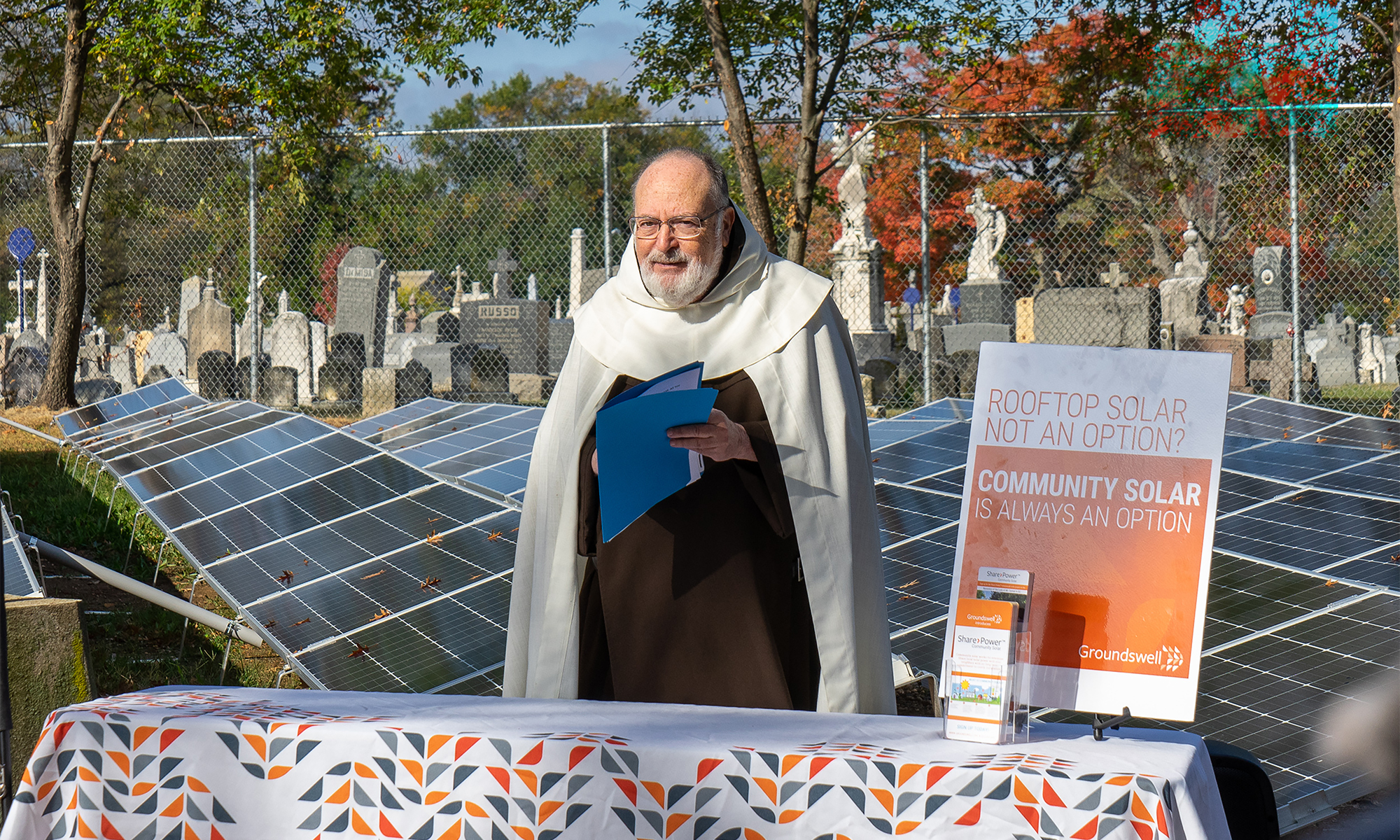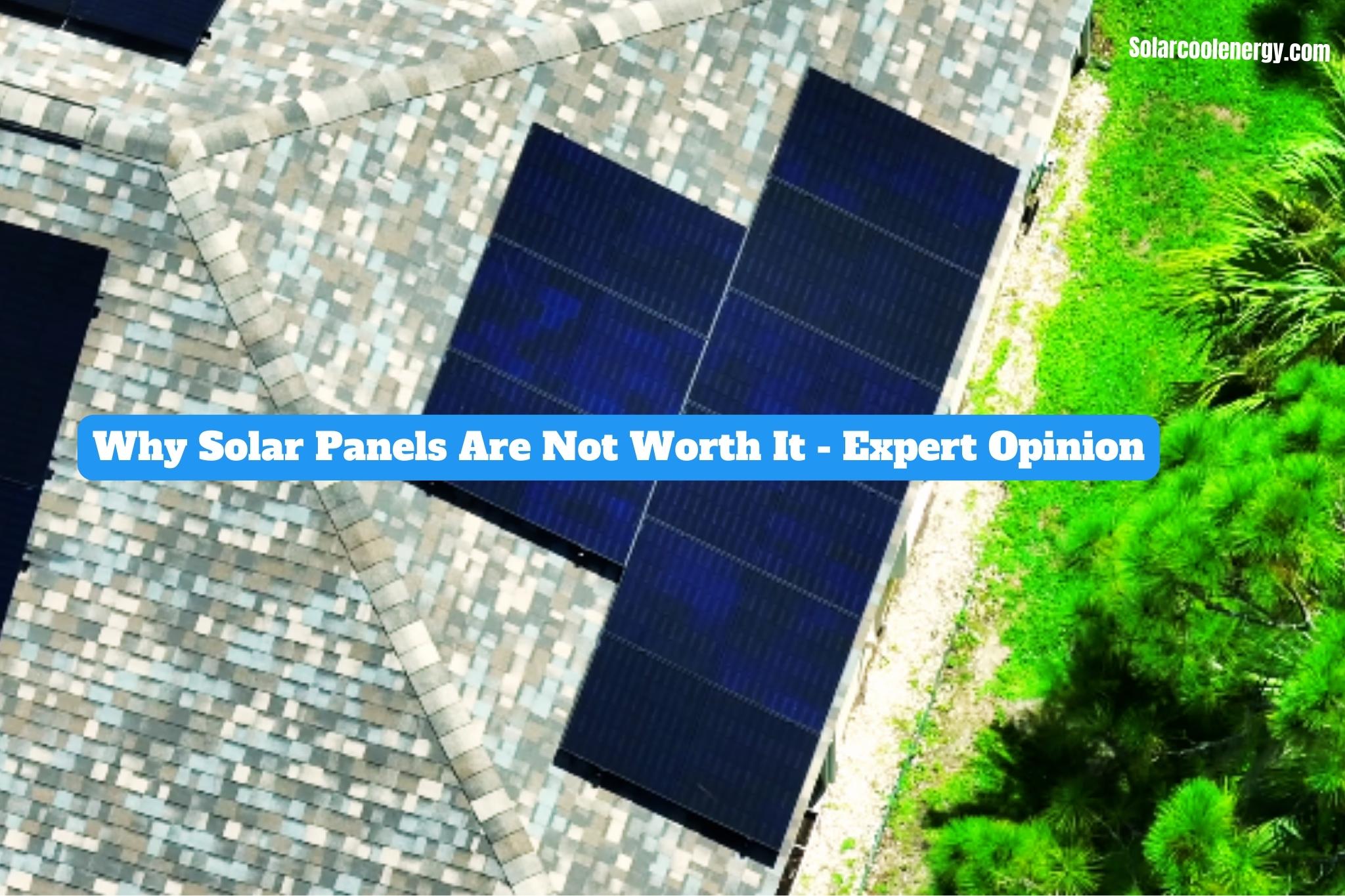Solar Panels Are Not Worth It if your roof is shaded, lacks space, or is oriented north, as they may underperform. Additionally, if you live in an area with frequent cloudy days and few solar incentives, you may see limited savings over the lifespan of the panels.

Analyzing The Solar Investment
When considering the installation of solar panels, it is essential to conduct a thorough analysis of the investment. This analysis involves examining various factors such as upfront expenditure, potential energy savings, and the payback period length. By evaluating these aspects, homeowners can determine whether or not solar panels are a worthwhile investment.
Upfront Expenditure On Solar Panel Installation
One of the first considerations when analyzing the solar investment is the upfront expenditure on the installation of solar panels. This includes the cost of the panels themselves, as well as the expenses associated with installation, wiring, and permits. It is crucial to research and compare prices from different solar providers to ensure you receive the best deal.
Comparing Initial Cost To Potential Energy Savings
Another important aspect to evaluate is the initial cost of installing solar panels compared to the potential energy savings over time. While solar panels can reduce or eliminate monthly electricity bills, it is essential to calculate how much energy you consume and how much you can potentially save. This information will allow you to determine the breakeven point and judge if the long-term savings outweigh the initial investment.
Payback Period Length Assessment
The payback period is the time it takes for the savings from solar energy to offset the initial cost of installation. Assessing the payback period length is crucial in determining the financial viability of solar panel investment. Calculate the payback period by dividing the initial cost by the estimated annual savings on your electricity bill. Keep in mind that the payback period may vary based on local electricity rates, incentives, and individual energy consumption.
In conclusion, analyzing the solar investment is crucial before deciding whether solar panels are worth it for your specific situation. By considering the upfront expenditure, comparing initial costs to savings, and assessing the payback period length, you can make an informed decision about whether solar panels are a feasible option for your home.

Credit: Youtube
Varying Efficiency In Different Climates
One important factor to consider when evaluating the worthiness of solar panels is the varying efficiency in different climates. The efficiency of solar panels is greatly influenced by weather patterns, degradation over time, and reliability concerns.
Impact Of Weather Patterns On Solar Efficiency
Weather patterns play a crucial role in determining the efficiency of solar panels. While solar panels can generate electricity even on cloudy days, their productivity is significantly reduced compared to sunny days. This means that if you live in an area that experiences frequent cloudy days, the overall energy output of your solar panels may be lower than anticipated. Additionally, regions with extreme weather phenomena, such as heavy snowfall or prolonged rain, can further impact the efficiency of solar panels. Snow accumulation can block sunlight from reaching the panels, reducing their output, while excessive rain can cause electrical components to malfunction.
Degradation Rate Of Solar Panels Over Time
Solar panels are designed to last for several decades, but they do experience degradation over time. This degradation can be attributed to various factors, including exposure to sunlight, temperature fluctuations, and environmental conditions. As a result, the efficiency of solar panels tends to decline gradually over the years. While the degradation rate can vary depending on the quality of the panels, it is an important consideration as it directly affects the long-term performance and value of the investment. Over time, the reduced efficiency may lead to decreased energy production and lower cost savings.
Reliability Concerns And Maintenance Costs
Another aspect to consider is the reliability of solar panels and the associated maintenance costs. Solar panels must be serviced on a regular basis to guarantee peak performance. This includes cleaning to remove dirt, debris, and pollutants that can accumulate on the surface of the panels. Additionally, periodic inspections and repairs may be necessary to address any potential damages or malfunctions. These maintenance activities can add up over time, resulting in additional costs. Moreover, the reliability of solar panels can be a concern, especially in areas prone to extreme weather conditions or natural disasters. Damages caused by severe storms or hail can lead to costly repairs or even replacement of the panels.
Influence Of Solar Panels On Home Value
Solar installations and their effect on real estate Solar panels have gained popularity as a renewable energy source for homes. While they may seem like a futuristic and environmentally friendly addition to your property, it is important to consider their impact on the value of your home. Solar installations have both pros and cons in the real estate market. While they can enhance the selling potential of a home, there are also potential challenges associated with selling solar-equipped homes.
When it comes to selling a home equipped with solar panels, there are a few things to consider. One challenge is that not all potential buyers may be interested in the added responsibility of maintaining and monitoring solar technology. Some may be concerned about the complexity of the system or potential increases in insurance costs. Additionally, the cost of solar panels and installation can be prohibitive for some buyers, making the home less marketable.
While solar panels can provide energy savings and reduce carbon footprints, they can also require changes in lifestyle to fully optimize their benefits. Homeowners must be mindful of factors such as the direction their roof faces, the amount of shade it receives, and the climate of their location. In areas with frequent cloudy days or limited solar incentives, the savings over the lifetime of the panels may be reduced. Additionally, relying on solar energy means homeowners must adapt to periods of limited sunlight, potentially requiring a backup power source or reliance on the conventional utility grid.
In conclusion, while solar panels can have a positive impact on home value and offer eco-friendly benefits, there are also potential challenges and lifestyle changes that need to be considered. It is important to weigh the costs and benefits before investing in solar technology for your home. Ultimately, the decision should align with your energy goals, budget, and the preferences of potential buyers should you decide to sell in the future.

Credit: ideas.ted.com
Rethinking Government Solar Subsidies
Solar panels may not be worth the investment if your roof is shaded, lacks space, or faces north. In regions with cloudy days and limited solar incentives, savings over the panel’s lifespan may be minimal. Additionally, solar energy is not available at night, requiring reliance on grid power or battery storage.
Current State Of Government Incentives For Solar
Government incentives for solar panels have been a significant driving force behind the adoption of solar energy in recent years. However, it’s important to analyze the effectiveness and value of these subsidies. Currently, government incentives vary from state to state, with some states offering generous tax credits, rebates, and grants to encourage homeowners to install solar panels on their properties.
Changes In Subsidies And Economic Viability
The economic viability of solar panels is closely tied to government subsidies. Over the years, we have witnessed changes in the level of these incentives, which can significantly impact the cost-effectiveness of solar installations. While some states have maintained or even increased their subsidies, others have reduced or eliminated them altogether, making solar panels less attractive from a financial perspective.
It is essential for homeowners to carefully evaluate the current state of government incentives in their specific location before making a decision regarding solar panel installation. Taking advantage of lucrative subsidies can make a substantial difference in the overall return on investment.
The Role Of Local Utility Rates And Net Metering Policies
In addition to government subsidies, local utility rates and net metering policies also play a significant role in determining the feasibility of solar panels. Net metering allows homeowners to sell excess electricity produced by their solar panels back to the grid, resulting in potential cost savings and even revenue generation. However, not all states have favorable policies in place for net metering, which limits the economic benefits for solar panel owners.
Furthermore, local utility rates can impact the payback period and long-term financial benefits of a solar panel installation. High electricity rates make solar panels more economically attractive, as homeowners can offset their energy costs and potentially achieve energy independence. Conversely, low utility rates may reduce the financial incentives for investing in solar panels.
Therefore, it is crucial for individuals interested in solar energy to analyze both government incentives and local utility rates before making a decision. Understanding the existing policies and the potential financial benefits can help homeowners make an informed choice about the viability of solar panels.
Why Solar Panels Are Not Worth It For All
Solar panels have gained popularity in recent years as a way to reduce energy costs and contribute to a greener planet. However, while solar panels may be a great investment for some, they are not the right choice for everyone. There are several factors to consider before making the decision to install solar panels. In this article, we will explore three key reasons why solar panels may not be worth it for all individuals and households.
Environmental Impact Of Manufacturing And Disposal
The production and disposal of solar panels have environmental implications that are often overlooked. The manufacturing process involves the use of various materials, including silicon, aluminum, and glass, which require energy-intensive processes and contribute to carbon emissions. Additionally, the disposal of solar panels at the end of their lifespan can be problematic, as they contain hazardous materials that can harm the environment if not managed properly.
Assessment Of The Carbon Footprint Of Solar Panels
While solar panels themselves do not emit greenhouse gases during operation, their carbon footprint goes beyond that. The production of solar panels requires the use of fossil fuels, and the transportation of the panels from manufacturing facilities to installation sites also contributes to carbon emissions. It is essential to assess the entire lifecycle of solar panels, from production to disposal, to get a more accurate understanding of their overall environmental impact.
Misalignment Between Expectations And Practical Outcomes
One common misconception about solar panels is that they will completely eliminate or significantly reduce energy bills. However, the effectiveness of solar panels depends on various factors, such as the location, orientation, and shading of the installation site. If your roof is shaded or does not have enough space, your panels may underperform, resulting in lower energy savings. Moreover, if you live in an area with fewer solar incentives or a high number of cloudy days, the financial benefits of solar panels may not outweigh the initial investment.
It is crucial to align your expectations with the practical outcomes of installing solar panels. Conducting a thorough assessment of your specific situation, including the available sunlight, the condition of your roof, and the local solar incentives, will help you make an informed decision discuss whether solar panels are a good investment for you.
Frequently Asked Questions Of Why Solar Panels Are Not Worth It
Why Solar Is Not A Good Investment?
Solar panels may not be a good investment if your roof is shaded, lacks space, or is facing north. Additionally, if you live in an area with many cloudy days and few solar incentives, you may see limited savings over the lifetime of the panels.
Solar energy is also not available at night, requiring reliance on utility grids or battery storage. The high upfront costs, maintenance expenses, and need for periodic replacements are additional downsides.
What Is The Downside Of Getting Solar Panels?
Solar panels have a few downsides: they don’t work at night, so you need a backup power source, and they require a lot of space on your roof. In areas with limited sunlight and few solar incentives, savings may be lower over time. Maintaining and replacing parts can also be costly.
Why Would You Not Prefer To Use A Solar Panel?
Solar panels may not be preferred if your roof is shaded, lacks space, or faces north, as they may not perform optimally. Additionally, areas with frequent cloudy days and limited solar incentives may result in fewer savings over time. The more electricity you want to generate, the more space you’ll need, which not all roofs can accommodate.
Why Solar Panels Aren T Efficient?
Solar panels may not be efficient for several reasons. Factors such as limited rooftop space, shading, and unfavorable orientation can cause the panels to underperform. Additionally, areas with frequent cloudy days and few solar incentives may result in less lifetime savings from the panels.
Conclusion
While solar panels may seem like a great investment, there are several factors to consider before making the decision. The location of your home, the amount of sunlight it receives, and the availability of solar incentives in your area can all impact the savings you will see over time.
Additionally, the high upfront costs and maintenance requirements should not be overlooked. Ultimately, solar panels may not be worth it for everyone, so careful consideration should be taken before making the investment.

